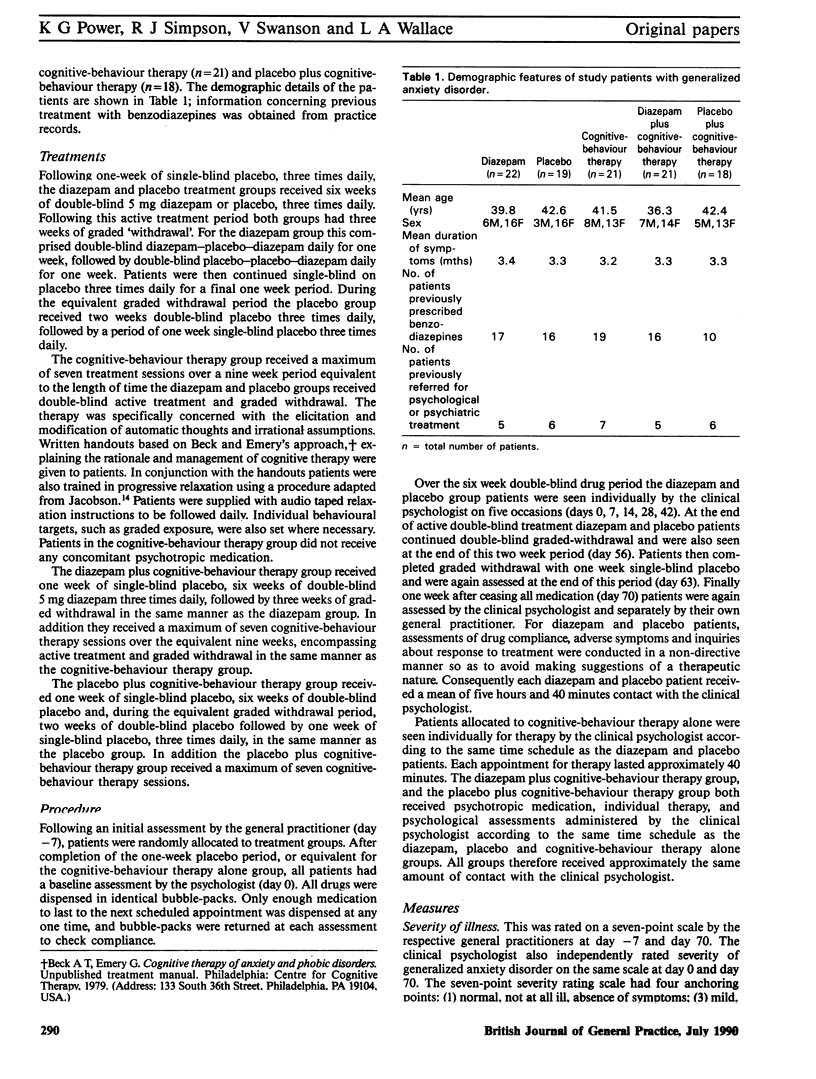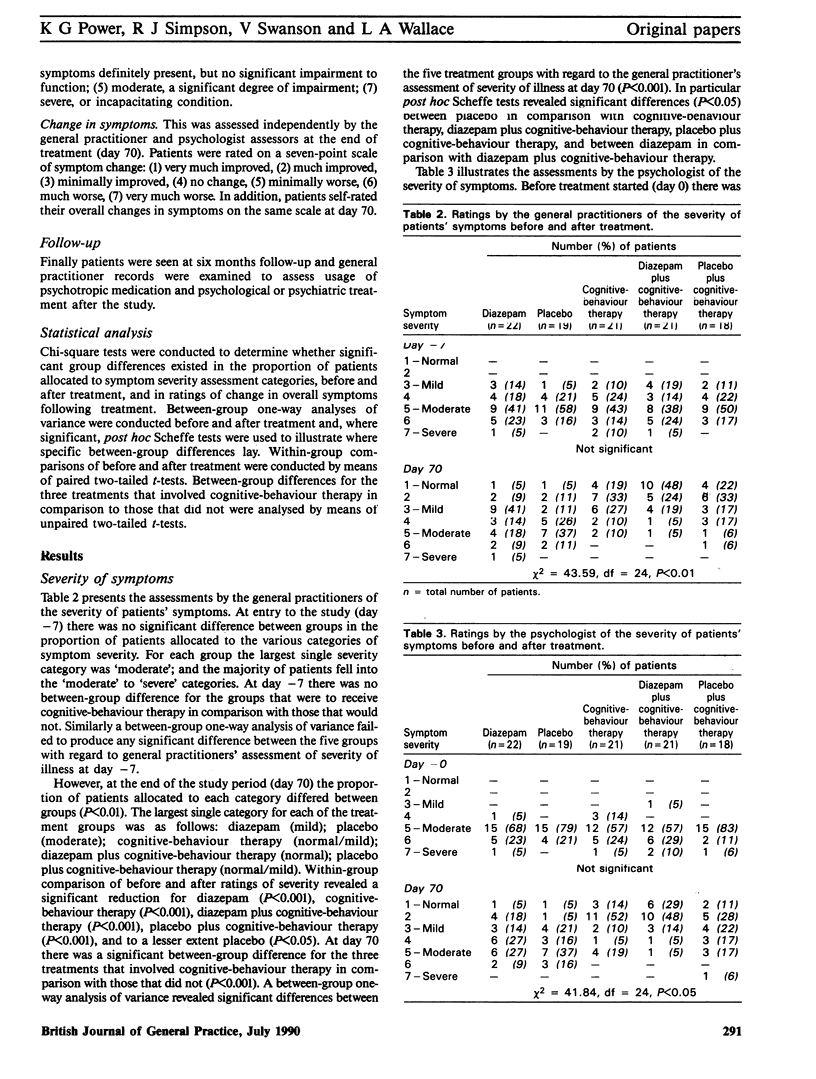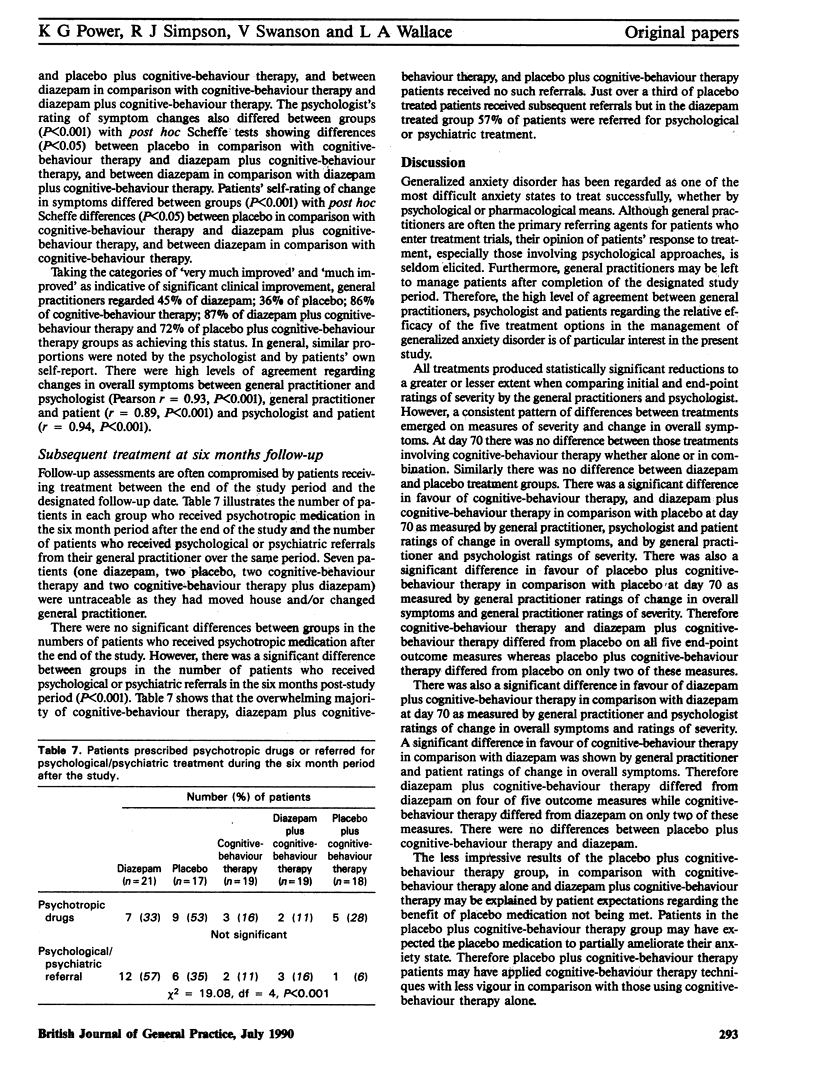Abstract
A sample of 101 patients with generalized anxiety disorder were randomly allocated to one of five groups--diazepam, placebo, cognitive-behaviour therapy, diazepam plus cognitive-behaviour therapy, or placebo plus cognitive-behaviour therapy--and treated over 10 weeks in a primary care setting. All groups received a similar amount of contact with the psychologist and general practitioner. The greatest improvement in ratings of severity of symptoms and overall change in symptoms occurred with cognitive-behaviour therapy combined with diazepam; cognitive-behaviour therapy alone also performed well and cognitive-behaviour therapy plus placebo performed slightly less well. Diazepam alone showed improvement relative to placebo alone. There was a high level of agreement between ratings by the general practitioners, psychologist, and the patients of the response to treatment. At six months follow-up there was no difference between treatment groups in the proportion of patients receiving psychotropic medication after the end of the study. However, cognitive-behaviour therapy, either alone or in combination with drug or placebo, showed the lowest incidence of referral for psychological or psychiatric treatment at six months follow-up.
Full text
PDF





Selected References
These references are in PubMed. This may not be the complete list of references from this article.
- Feighner J. P., Merideth C. H., Hendrickson G. A. A double-blind comparison of buspirone and diazepam in outpatients with generalized anxiety disorder. J Clin Psychiatry. 1982 Dec;43(12 Pt 2):103–108. [PubMed] [Google Scholar]
- HAMILTON M. The assessment of anxiety states by rating. Br J Med Psychol. 1959;32(1):50–55. doi: 10.1111/j.2044-8341.1959.tb00467.x. [DOI] [PubMed] [Google Scholar]
- Lapierre Y. D., Tremblay A., Gagnon A., Monpremier P., Berliss H., Oyewumi L. K. A therapeutic and discontinuation study of clobazam and diazepam in anxiety neurosis. J Clin Psychiatry. 1982 Sep;43(9):372–374. [PubMed] [Google Scholar]
- Power K. G., Jerrom D. W., Simpson R. J., Mitchell M. Controlled study of withdrawal symptoms and rebound anxiety after six week course of diazepam for generalised anxiety. Br Med J (Clin Res Ed) 1985 Apr 27;290(6477):1246–1248. doi: 10.1136/bmj.290.6477.1246. [DOI] [PMC free article] [PubMed] [Google Scholar]
- Rickels K., Weisman K., Norstad N., Singer M., Stoltz D., Brown A., Danton J. Buspirone and diazepam in anxiety: a controlled study. J Clin Psychiatry. 1982 Dec;43(12 Pt 2):81–86. [PubMed] [Google Scholar]
- Tyrer P. Dependence on benzodiazepines. Br J Psychiatry. 1980 Dec;137:576–577. doi: 10.1192/bjp.137.6.576. [DOI] [PubMed] [Google Scholar]


